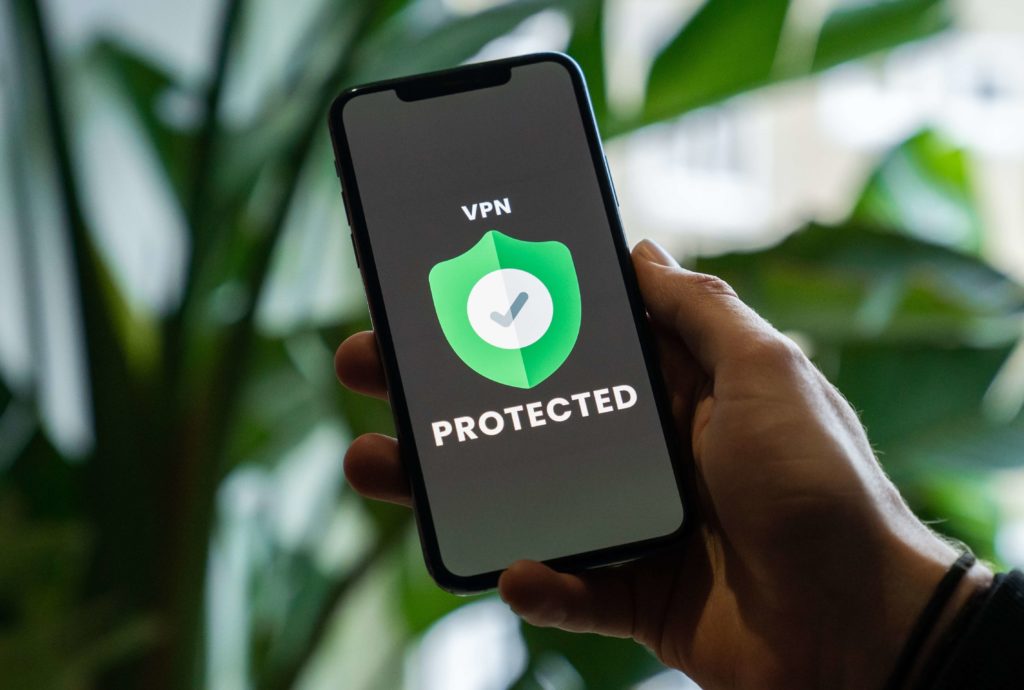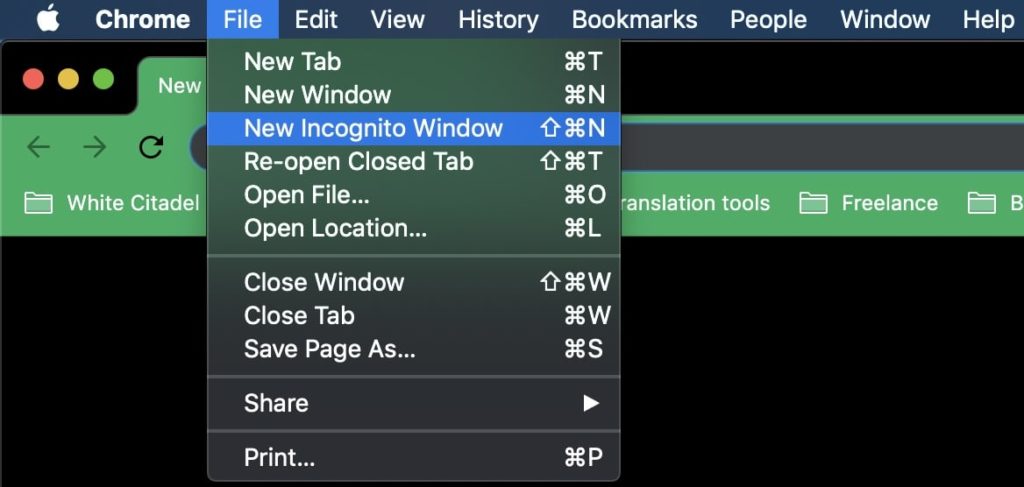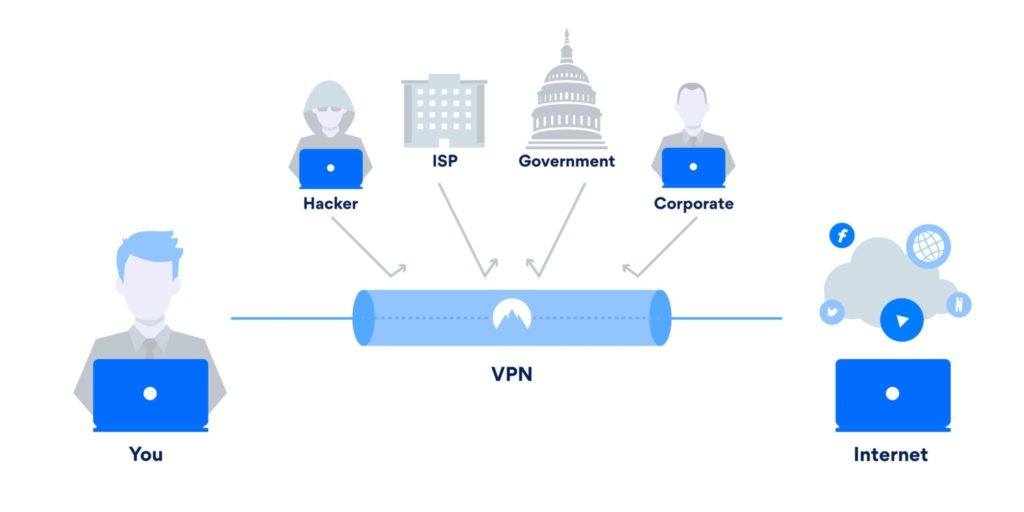Anonymous Surfing: How Do You Do It?

Written by: Caleb Hill

There are all kinds of valid reasons for wanting to remain anonymous on the internet. Maybe it's just about avoiding targeted advertisements; maybe you don't like the idea that your internet provider or the AIVD can see where you're going to Google in your spare time. Even air travel prices are influenced based on your search history.
Either way, I'm happy to help you surf the internet anonymously. Let's start right away!
The most obvious - and easiest - option to browse anonymously is the Incognito or private mode of your browser. The operation of this mode is basically the same under the different browsers: an Incognito or private window does not store searches, visited websites or cookies.
Thus, your activity does not appear in your history, nor can this data be automatically entered by Google the next time you or someone else searches on the Internet.
Private mode or Incognito window
However, because the functionality of an Incognito or private window is limited to this, we can certainly be described as truly anonymous surfing. However, if you just want to prevent your searches and visited websites from being stored and used for targeted advertising, this solution is perfectly suited to your needs.
Opening such a private window is similar between different browsers. The easiest is to use the appropriate key combinations:
- For Chrome, Opera and Safari this is CTRL + Shift + N in Windows, or CMD + Shift + N in MacOS.
- For Firefox and Edge this is CTRL + Shift + P in Windows, or CMD + Shift + P in MacOS.
You can also use your mouse and the menu bar:
- In the menu bar at the top, go to File > New Incognito window.
Super simple, right?

Private search engine
Maybe you don't feel like performing these steps every time. In such a case, move to another search engine, such as DuckDuckGo!
DuckDuckGo is a search engine that, unlike Google, tries to protect the privacy of its users by deliberately showing all users the same search results for a specific keyword. These search results are therefore not filtered or personalized based on the user's browsing history.
Proxy server
Unfortunately, neither the private mode nor DuckDuckGo really allows anonymous browsing. Even when using it, your IP address, location, information about your device and which websites you have visited remain visible to the servers of the pages you visit.
A more advanced option that can change this is the proxy server. This serves as a waypoint for your internet traffic. As a result, the websites you visit will not be able to see your real IP address. Instead they see the IP address of the proxy server.
There are a number of free proxy servers. However, in most cases such a free proxy server leaves a lot to be desired in terms of anonymity. For example, in most cases your traffic is not encrypted between your computer and the proxy server, so your ISP can still easily see what you are doing.
However, a situation where such a proxy server can be useful is for example when you are on a network that blocks certain websites or when you want to view geographically blocked content (such as the huge Netflix offering in America…). It is also useful if you don't want the website you visit or any other server you connect to to see your own (real) IP address.
VPN service
Now we switch to the real thing: the VPN. What is a VPN? A VPN encrypts and directs your web traffic to its destination via servers of the VPN provider. This encryption takes place before your ISP realizes it. So when your ISP looks at your internet traffic, it only sees that your data is encrypted, nothing more.
This masks your IP address and protects your data. In addition, your virtual (VPN) IP address changes every time you connect to your VPN. In this way, your searches are not merged into a single profile that can be used for advertising. However, they remain visible as an automatic supplement when you type something into your browser.

Since the VPN provider can view your web traffic himself, it is crucial to choose a zero-log VPN. Such a VPN does not store your web traffic or never has access to it. Usually this means that you have to go for a paid service. As a result, such a VPN is not inclined to resell your data to third parties - as free VPNs are only too happy to do.
So, what a VPN does: it prevents surveillance by your ISP, hackers and other individuals monitoring your web connection. However, it's worth noting that you can still (partly) be identified by other data, such as your "browser fingerprint" (the specific configuration of your browser, such as fonts, extensions and screen size).
What a VPN doesn't do: it doesn't erase the searches from your browser, so that anyone with access to your computer (as opposed to your internet connection) can still view your searches. It also doesn't protect against recording search terms when a user is logged in. For example, if you are logged in to your Outlook account on Edge, Bing still records your searches and links them to your Outlook account.
So ideally protect yourself against targeted profiling if you really want to remain completely anonymous. If someone tries to identify you through your web traffic, a VPN makes it more difficult, but not impossible. For example, a hacker who controls VPN traffic can gather enough information about search terms created, links visited and general online behavior to build an identification profile.
Tor-browser
No discussion of online anonymity is complete without mentioning Tor. The name comes from the acronym for "The Onion Router", suggesting that many layers of security are provided.
Tor is a free network of tunnels intended for passing web requests and downloading web pages. It is not the same as a VPN, but depending on its configuration, it can be even better at protecting your identity. It is supposed to make it impossible for the site you visit to find out who you are. But is that really the case?
For a higher level of anonymity, the Tor-browser encrypts and directs all your web traffic through a network of other Tor users, so your searches seem to come from different IP addresses (also called exit nodes). This makes it extremely difficult (but not impossible!) to link your search terms to identifiable information. Unfortunately, it also slows down your internet connection considerably.
Searching in Google with Tor does not lead to searches being linked to a specific IP address. This is due to the large number of people using Tor and the limited browser access. These make it more difficult to identify someone based on their unique browser configuration.
So, what Tor does do: it prevents passive surveillance by the government and ISPs and prevents search engines from creating user profiles. Your browsing history and search queries are not stored unless you explicitly set this up.
What Tor doesn't do: it doesn't offer complete anonymity of individuals who may be actively trying to identify you. This can be done, for example, by using searches on certain terms, locations or unique functions to build an identification profile. Nor can it, by definition, reject all cookies. However, you can very easily create a 'new identity' while browsing that, among other things, deletes all cookies.
Conclusion
Do you want to surf the internet anonymously? Then you have - as you know by now - enough options to choose from. In my opinion, a VPN offers the best middle ground between ease of use, anonymity and security.
